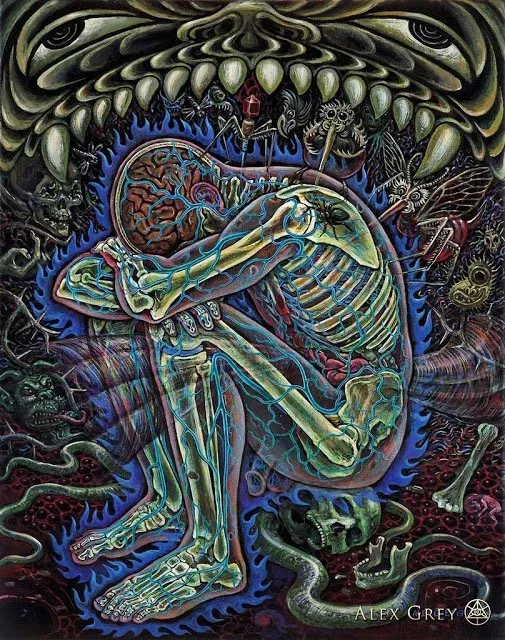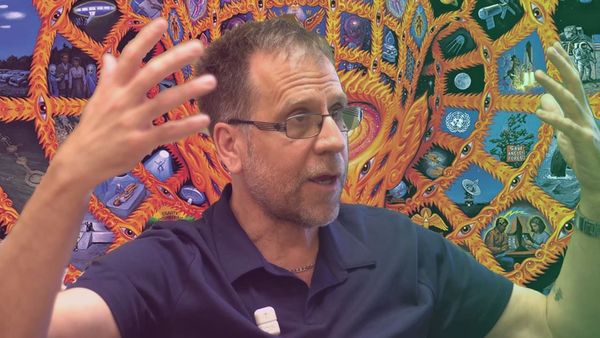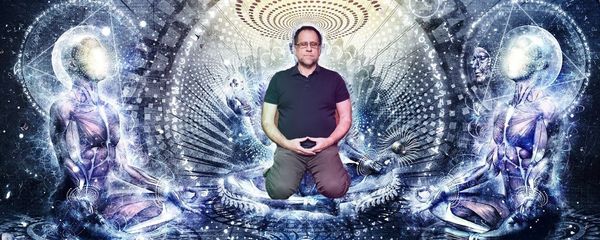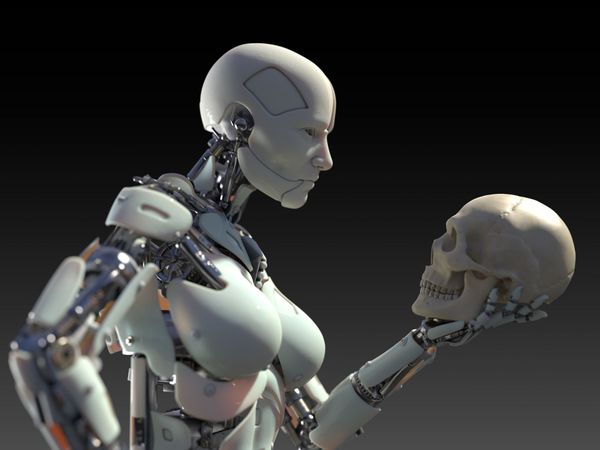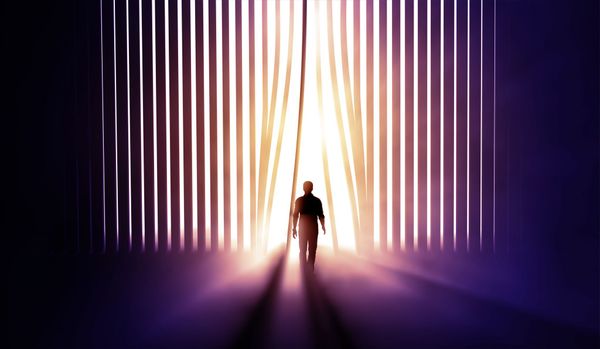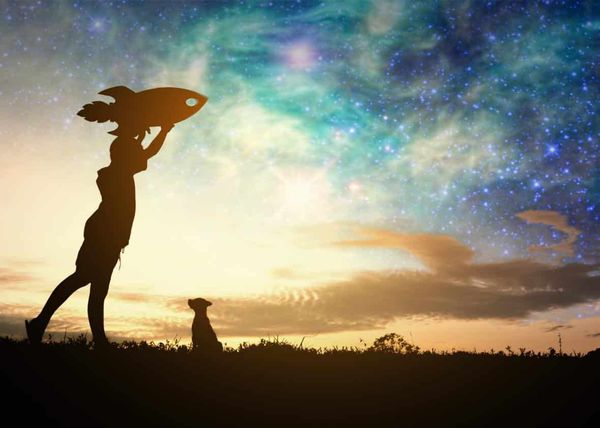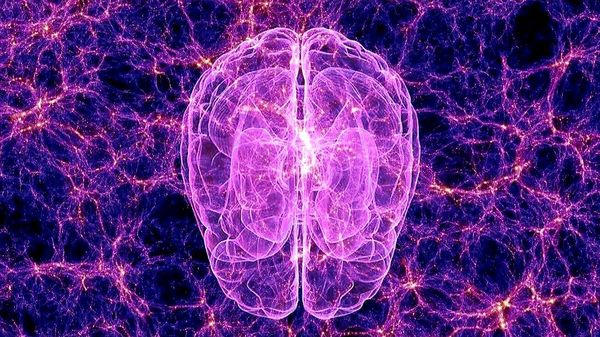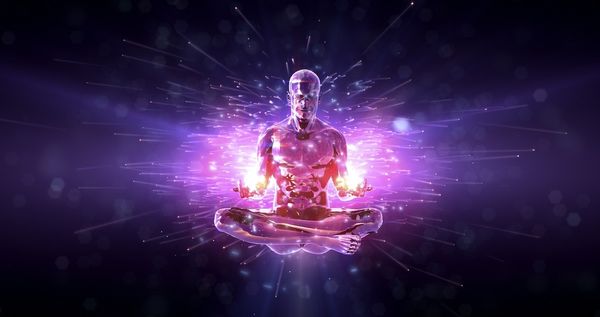Matt Karamazov • • 20 min read
The Paradox of Choice: On FOMO, Decision-Making, and the Good Life
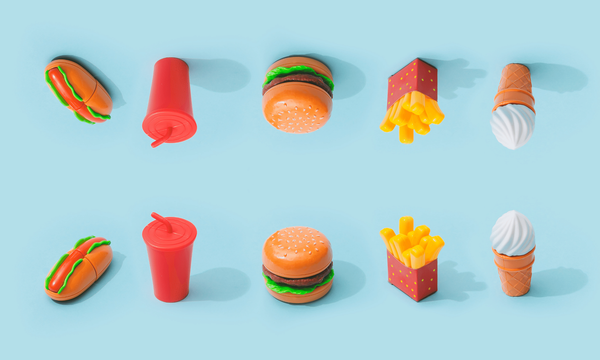
“Look at this gateway! It hath two faces. Two roads come together here: these hath no one yet gone to the end of. This long lane backwards: it continueth for an eternity. And that long lane forward – that is another eternity. They are antithetical to each other, these roads; they directly abut on one another: and it is here, at this gateway, that they come together. The name of the gateway is inscribed above: ‘This Moment.’”
— Friedrich Nietzsche, Thus Spoke Zarathustra
Staring at the blank page, I want to hook you in with the most compelling English sentence I can think of, and in the execution of this aim, I face many choices.
I was thinking of starting with “Free Beer!”, which is the most compelling English sentence I can think of…
But according to MathIsFun.com’s “Combinations and Permutations Calculator”, if there are 171,476 English words in current usage, neologisms notwithstanding, and the average sentence is 15 words long, then this is the number of possible opening sentences I could have created in order to capture your attention and make you want to read on:
3,258,743,390,496,303,169,343,465,180,799,457,101,382,075,604,741,914,423,812,922,301,499,366,887,653,376
Don’t ask me what that number actually is, because I have no sweet clue. I just know that it’s really, insanely, impossibly, monstrously, obscenely huge.
Of course, most of those sentences wouldn’t make a lick of sense, such as “Purple monkey dishwasher,” or “Tequila shots sound like a good idea!”
But at least some of those possible sentences would be the most famous and compelling opening sentences in all of literary history, such as “It was the best of times, it was the worst of times…” and: “As Gregor Samsa awoke one morning from uneasy dreams he found himself transformed in his bed into a monstrous vermin.”
Well, “Call me Ishmael”, because our paralyzing plethora of choices extends into each and every facet of our lives, and it’s a responsibility no one can escape.
To live, you must choose.
And what a dizzying array of choices we all have!
For starters, we have to realize how many choices we make by default. You were born in a particular place, but in an increasingly mobile world, you don’t have to stay there.
There are approximately 4,400 cities in the world, and, except in extreme cases, you could move to almost any one of them, almost at whim. 4,400 different life paths you could choose, each city offering chances of serendipitous encounters with billions of different people.
Oh, and in case you narrowed that list down to 3-4 cities you’d rather live more than anywhere in the world, here’s a list of 12,000 different careers you could pursue, all over the world.
You want a relationship? You’re in luck! In the U.S. alone, there are more than 100 million people over the age of 18 who are not currently in a serious relationship. That’s 45% of their population, so you can imagine what the number is worldwide.
Suppose you ask one of those people out and decide to see a movie. You have 300,000 movies to choose from if they say “Yes”, or more than 130,000,000 published books to read by yourself, if they say “No! Ew! Get away from me!”.
Or, if you opt instead for a date-night under the starry sky, you’ll have ten trillion(!!!) galaxies in the universe to contemplate.
Given all of the above, suddenly, the roughly 25,000 days most of us have to live seems like a divine insult. Almost a cosmic joke. It seems like one of the only things we don’t have is time.
We want to live every life that we can, including and especially one that is definitively our own, but this can come to seem like an impossible task. Our unlived lives taunt us from a distance.
What I’m going to do however, is deliver you from fundamental guilt.
We’re going to go into the paradox of choice together, as friends, and see if we can’t make sense of it all. I’m going to lay out some considerations with respect to choices and decision-making, and you can then decide for yourself whether they will be of service to you in the aim of creating yourself,and of carving out a life for yourself.
The first viewpoint I’d like to venture is that perhaps it’s better to have too many choices, than not having any choices at all.
For instance, I would much rather have to choose between 12,000 different possible careers than have to do the work selected for me in some sort of Huxley-esque dystopian future where every vocational choice is made for me.
And although I have nothing against the practice of arranged marriage (my parents were even offered one for me at an early age!), I’d much rather have to choose between a multiplicity of possible partners than have one simply selected for me.
We have choices at all (many people around the world still don’t), and this is truly a great thing. Given the choice, I’d rather have more choices! And when you consider the strata of the population that have access to greater choice than ever before (women, ethnic minorities, etc) we can see that choice is a blessing.
As the world progresses, more people have access to more choices, and it’s hard to see how that could be somehow “worse” than where they came from. The world is moving forward.
But, I have to add this little “twist”:
All the lives you COULD lead are distractions from the ACTUAL life you are living now.
The life you are living now is supremely important, I don’t care who you are. For you, your life is the most important thing happening in the universe, and although this can easily lead to an excessively narcissistic outlook, it doesn’t have to. As far as you’re concerned, you’re the center of the universe. And I think the same thing about myself!
Again, this is not a “bad” thing. As long as our choices are mutually beneficial, we can both believe we’re the center of the universe, and still both come out ahead.
Alright, so we’re forced to make choices, “condemned to be free”, as Jean-Paul Sartre said. Why do we feel that condemnation so acutely?
The following is a short diagnosis of some contributing factors:
A SHORT DIAGNOSIS:
As far as I can tell, there seem to be at least 8 different factors that are contributing to our uneasiness with respect to our choices. These are, simply:
- Rising Expectations: We have more choice, higher standards of living, greater access to resources of all kinds, and we expect that this trend will continue. Then, when we look at our current lives and they don’t measure up to what we think they COULD be, we feel anxiety.
- Awareness of Opportunity Costs: When you watch one movie, you’re choosing NOT to watch every other movie that was ever made. When we think about all that we are giving up for our present choice, we feel anxiety.
- Aversion to Trade-Offs: We hate giving up stuff. When we buy groceries, for instance, we feel as if we’re parting with our wealth, but we don’t realize that our wealth is actually inside our grocery basket! Similar to the above, when we think about the sacrifices we are making, we feel anxiety.
- Adaptation: We get used to the way things are, eventually, though we hardly ever realize that we are going to do so. When it comes to our choices, no matter what we’ve chosen, it eventually comes to be the new normal. When we think of other choices we could have made, we often forget this, and hence we feel anxiety.
- Self-Blame: When things go wrong, we blame ourselves for the failure. This is not a bad thing in itself (indeed, taking responsibility for the direction of our lives is critical to happiness), but when self-blame for “bad” choices becomes excessive, we feel anxiety.
- Regret: You know what regret is. When we look back at some ill-advised action that we took in the past that could have turned out better, we feel anxiety.
- Social Comparisons: Even if you made a great choice, there’s probably someone out there who made a similar, but better choice. Think of the difference between two investors, one who cashed out his Google stock at its current valuation 10 years ago, and someone who still holds it today. When we see other people who have made better choices than we have, we feel anxiety.
- Maximizing: We’re going to get into this later, but in essence, maximizing is the search for the absolute best choice one could possibly make, rather than making a choice that is “good enough” and then moving on. When we hold off on making a choice in the search for the absolute best choice, we feel anxiety.
THE PARADOX OF CHOICE:
One of the best books I’ve ever read about choices is called The Paradox of Choice, by Barry Schwartz. It’s got that “kindly old professor” feel to it, as he runs through some of the psychology behind choices, and what that means for us as we move through our messy human lives.
Some key takeaways, immediately applicable:
- What we expect to happen, what we actually experience, and what we remember experiencing, need to match up in order for us to feel completely confident about the choice we made. But, very often, they don’t. Technically: “expected utility”, and “remembered utility”.
- The proliferation of choices available to us in modern life means that a) making decisions is more difficult and mentally taxing than ever, b) errors are more likely, and c) the “psychological cost” of mistakes rises ever higher. In essence: if you have six available choices, and you make a wrong decision, it’ll hurt more than if you only had 3 choices and you made the decision.
- People are generally divided into “maximizers” who try to make the absolute best decision they possibly can, and spend a very large amount of time making sure this is true, and “satisficers” who attempt to make a decision that is “good enough” before moving on. Nobody is a maximizer in every decision, but probably everyone is in at least a few areas.
- The choice of WHEN to choose may be the most important choice we make. Sometimes we need to just go with the default and move on to more important decisions. And yet, some situations require us to choose, for the sake of our life satisfaction, one distinct path rather than another.
- The attractive features of the choices you’re not making add up to make the choice you actually do make seem less appealing. This is essentially the buildup of opportunity costs which renders us dissatisfied with what we have chosen.
But let’s go deeper than all this.
What we’ve just discussed were simply lab results and theories; useful, interesting, fascinating at times, but essentially removed from the living of our daily lives.
To wit, there is in many people a creeping sense of dread, an inkling that our directionless and purposeless lives end up making our daily choices irrelevant at best, and that any direction we take in life can only end in meaninglessness and existential despair, even if most people would not use those terms.
I don’t have the space to go into this subject in extreme depth, but that is the thesis behind the book, Utopia for Realists, by Rutger Bregman. An excellent read, I would add.
He says that the crises of the future won’t be ones of material want; they will be crises of meaning and fulfilment, when we as a society have all our other material needs already met.
And we ARE becoming richer, faster than ever before. There are now more people suffering from obesity worldwide than from hunger, and it seems as though when people’s material needs are taken care of, they look up from their survival concerns and try to find an answer for why life should be lived at all.
But as Bregman says,
“In that sense, I’m heartened by our dissatisfaction, because dissatisfaction is a world away from indifference.”
People WANT to live for something, as opposed to being completely indifferent. Indifference is deadly, but dissatisfaction we can work with. Dissatisfaction has an answer, a way forward. Dissatisfaction comes down to a decision.
This is an angst-ridden decision for many, especially seeing how the average child in early 1990s North America was more anxious than the average psychiatric patient in 1950. I can only imagine it being worse now, even as most other indicators of well-being are in sharp ascension.
Depression is predicted to become the number one cause of illness worldwide by 2030, and in one sense, it’s no wonder why. When people no longer have to fight tooth and nail to survive, they start to wonder why they should survive at all. It’s to this subject that we now turn.
THE EXISTENTIALIST DECISION-MAKER:
Thrown into this world, without ever receiving any explanation why, and no one we can turn to for reliable answers (because everyone’s answers tend to be filtered through their own fear), every choice we make entails movement through time, towards our final and irrevocable extinction.
This is the realization we encounter at the moment when we truly grow up. Being a grown-up isn’t all “suits and airplanes”; suits and airplanes aren’t real life. Real life is choice, anxiety, and opportunities to flash courage and strength.
Make strong choices. Throw yourself into them. Commit yourself to living the best life of which you are capable, and you’ll often end up surprising yourself. Of course, if we are responsible for an action that turns out badly but almost turned out well, we will be prime candidates for regret. That’s the way it works. You can rail against it, or you can accept that going in.
Might this be a place for philosophy to swoop down and shine a light on things?
It’s the philosophy of existentialism that I’ve found to be incredibly helpful in this regard. Existentialists believe that every choice boils down to a choice of what kind of person you will be, and a choice of who you are; a vote, one might say, for the person you wish to become.
When you are born, in effect, you are being hurled endlessly toward an implacable silence, the emptiness of nonexistence, the death of everything you’ve known.
Substitute whichever religious or spiritual beliefs you want, but you have to admit, if you’re being honest, that it’s a POSSIBILITY. There’s a CHANCE that there’s just nothing, and that the life you are currently living is the only one you will ever have.
We don’t know.
Of course, Life and Death are complementary, in that they are part of a bigger Life that includes both of them, like crests and troughs, black and white.
But existential uncertainty is part of what makes life so endlessly exciting, and yet also intimidatingly scary.
Great philosophers like Jean-Paul Sartre and Martin Heidegger tend to intellectually intimidate people away from philosophy by using terms like “for-itself” and “in-itself”, and “being-towards-death”, not to mention things like “phenomenology” and “logical positivism”.
Never mind all that.
All J.P. and Marty are saying is that consciousness, YOUR consciousness, which tends to be self-interested and motivated by staying alive, by moving towards pleasure and avoiding pain (hey, no judging), is “for-itself”.
Once you’re dead, the “for-itself” turns into the “in-itself”, meaning a physical body, which has no desires, no fears, and no possibilities. Right now, we are “being”, but we are also continuously and inescapably moving “towards-death”.
Remarkably, existentialist philosophers are NOT a gloomy bunch. In fact, they are (or were) more alive than almost anyone you’ve ever known.
To borrow a dumb-sounding (but wise) phrase from Tony Robbins, they said “YES!” to life, they chose a path in life that aligned with their highest values, and they advanced confidently in the direction they had chosen, accepting everything that happened as if they had willed it; they slapped Death in the motherfucking face and lived to the point of tears.
If you recall the epigram at the top of this post, this brings us back to Friedrich Nietzsche’s thought experiment about the “eternal recurrence”.
The simplified idea here is that you could ask yourself whether, If you had to live your entire life over again, in exactly the same way, changing nothing, would you? For eternity and always?
Think about this: every broken bone, every moonlight swim, every love, every loss, every failing grade, every cancer diagnosis, every first date, every job interview, every cup of coffee, every nightmare, every sleepless night, every triumph. Again and again and again, forever and ever.
Most people would have some doubts.
Myself, I’d probably ask, Can’t I change just the tiniest little thing? Maybe keep my mouth shut that one time? Book that flight? Block that punch?
NO!
That’s not how this thought experiment works.
We’re saying “YES!” to life, and life is pain. Of course, life is so much more than that (more than we could ever know), but suffering and anxiety is a very large part of life. Some would even say it’s essential to living a complete and vibrant life.
Thus, Nietzsche:
“I tell you: one must still have chaos within one, to give birth to a dancing star!”
And:
“Courage, however, is the best slayer, courage which attacketh: it slayeth even death itself; for it saith: ‘Was THAT life? Well! Once more!’”
It’s this “existential courage” which is absent from the lives of most of the people you and I interact with on a daily basis. They just aren’t thinking about these things! They just aren’t thinking about how to live Life, with a capital “L”, in the face of uncertainty, anxiety, and certain death.
People spend so much time wondering what they’re going to do after university and stuff like that, but relatively little time and energy thinking about what kind of human being they want to become, about how they can best face the uncomfortable truths of human existence.
If you don’t make these kinds of considerations conscious, they will eat you alive from the inside.
Consider this passage from Ask the Dust, by John Fante, an existentialist novel if I’ve ever read one, right up there with Albert Camus’ The Stranger:
“Then I walked down the stairs, my lungs full of air, elated, my muscles so much stronger than ever before. But there was a tinge of darkness in the back of my mind. I walked down the street, past the Ferris Wheel and canvassed concessions, and it seemed to come stronger; some disturbance of peace, something vague and nameless seeping into my mind.
At a hamburger stand I stopped and ordered coffee. It crept upon me – the restlessness, the loneliness. What was the matter? I felt my pulse. It was good. I blew on the coffee and drank it: good coffee. I searched, felt the fingers of my mind reaching out but not quite touching whatever it was back there that bothered me.
Then it came to me like crashing and thunder, like death and destruction. I got up from the counter and walked away in fear, walking fast down the boardwalk, passing people who seemed strange and ghostly: the world seemed a myth, a transparent plane, and all things upon it were here for only a little while; all of us, Bandini, and Hackmuth and Camilla and Vera, all of us were here for a little while, and then we were somewhere else; we were not alive at all; we approached living, but we never achieved it. We are going to die. Everybody was going to die. Even you, Arturo, even you must die.”
Odds are, every single person that Arturo Bandini (John Fante’s alter ego) passed on the boardwalk that day was actively, if not consciously, pushing those thoughts of transience and temporality out of their minds as fast as their subconscious would allow.
Consciousness, the ego, does NOT like the idea of impermanence; it wants to stay here forever and ever. But, life being what it is, it knows that’s not possible. So we push these ideas out, we suppress them, and then they’re forced to come out in other ways.
Trying to suppress the subconscious fear of death is like trying to make water smooth with a flat iron. The waves will keep coming back.
Of course, one of the ways we suppress the thoughts of death and nonexistence is by declining to think at all. We leave our choices to others, and we let others dictate our values and motivations. Worst, we don’t even know that we’re doing this! We just think we’re “growing up”, or “making a living”.
See, most people are “other people”. They almost literally have no Self, and consequently they live within “others”. If most people ever stopped and asked themselves, most of their desires are motivated by other people, by what other people think they should be.
Choice is for the strong. It’s like a muscle that you have to build. Every time you let others dictate your choices, you are handing over your own personal power. I mean, you only live once! If then!
By the way, thanks for sticking with me here in this discussion of fundamental anxiety and the realities of choice and existence. This is heavy, next-level shit, and most people shy away from it. But you’re not; you’re plodding forward, staring straight at the sun, and that makes you a courageous existentialist, even if you didn’t think of yourself as one before.
Before we get into some practical strategies concerning managing choice in our lives, I’m gonna throw some fragments at you from The Fountainhead, by Ayn Rand. We’re going to listen in as the great fraud, Peter Keating, comes crawling to the protagonist Howard Roark and asks him for advice concerning his work. They’re both architects, except Keating is a manipulative hack, and Roark is Rand’s Creative Hero:
“If you want my advice, Peter, you’ve made a mistake already. By asking me. By asking anyone. Never ask people. Not about your work. Don’t you know what you want? How can you stand it, not to know?”
Peter replies:
“How do you always manage to decide?”
Roark simply says:
“How can you let others decide for you?”
This is the question: How can you let others decide for you?!?!
Many people end up in careers, they end up in lives, that they absolutely loath. I don’t understand how they can lie to themselves for thirty, forty, fifty years. Do you know how many DAYS there are in thirty years?!?!
Elsewhere, Howard Roark says to Peter Keating:
“That’s the sort of thing I want you to understand. To sell your soul is the easiest thing in the world. That’s what everybody does every hour of his life. If I asked you to keep your soul – would you understand why that’s much harder?”
This whole thing about “not selling your soul” comes loaded with anxiety. How could it be otherwise?
Listen: Anxiety has unique and fundamental instruction to offer, if we’re open to listening. And yet, if we panic about those feelings of panic, we can run away with ourselves and our flight from anxiety can become the axis around which our lives revolve.
Before we get down to some practical strategies you can use immediately to combat the paradox of choice, I will close this section with another excerpt from Ask the Dust:
“Here was the desert beneath these streets, around these streets, waiting for the city to die, to cover it with timeless sand once more. There came over me a terrifying sense of understanding about the meaning and the pathetic destiny of men. The desert was always there, a patient white animal, waiting for men to die, for civilizations to flicker and pass into the darkness. Then men seemed brave to me, and I was proud to be numbered among them. All the evil of the world seemed not evil at all, but inevitable and good and part of that endless struggle to keep the desert down.”
PRACTICAL STRATEGIES:
I had to look up whether the correct phrase was “brass tacks” or “brass taxes” (it’s the former), but we’re now going to get down to it. These are actionable tips you can use to combat the proliferation of runaway choice in all of our lives.
We’ll start with:
- Eliminate “decision fatigue”. Every decision we make reduces our store of decision-making power and energy that we carry with us throughout the day. It’s why many people wear the same clothes every day, eat the same things, etc. It’s to free up their mental energy for the important stuff. It’s a good strategy! So, reduce the number of decisions you make on a daily basis. But, remain mindful of the decisions you DO make.
- Produce “downward counterfactuals”. Mindfully bring up all the ways in which the decision you made could have turned out a lot worse than it did. People rarely do this on their own, instead, opting to think about how there were so many better things that could have happened instead. Your decision could have been worse, and you have to acknowledge this to yourself.
- Mix downward and upward counterfactuals. You don’t want to go through your entire life saying, “Oh well, I guess it could have been worse.” As useful and freeing as it is to produce downward counterfactuals sometimes, we must also see how we could have done better, and strive to make a better decision next time.
- Realize that you will adapt to your new circumstances. That’s what human beings do. You will fall back to the level of your character, and so your character should be your highest priority. If you’re good with money, responsible, and honest, but you lose a lot of money all at once with some bad decision, you will make more money later. And after the initial shock, you’ll be alright.
- Adjust your expectations. We can do more to affect the quality of our lives by adjusting our expectations than we can by doing anything else. Now, think carefully. That doesn’t mean that you have to expect mediocrity, or expect the worst, or whatever. Just don’t expect every choice you make to be perfect. Learn and move on. That’s another thing that human beings do.
- Moderate your effort with respect to each choice. Not every choice deserves the same amount of deliberation. Which school to send your children too is a decision you should devote more time to than the model of car you’ll replace your Civic with. Don’t stress over which nightclub to go do this weekend, but devote a good deal of time deciding your thesis topic.
- Cultivate choice within restraints and freedom within limits. Before Jocko Willink ripped off Aristotle by saying, “discipline equals freedom”, Aristotle said, “discipline equals freedom”. This means a couple things. What concerns us here is that when you commit to something, you cut off a lot of other choices. But you also make a lot of other things possible that would have been unavailable forever. Committing to becoming a better bodybuilder, for example, means that you can’t go out drinking every weekend and expect to achieve positive results in your physique. But those very same results become possible once you make the decision, once and for all, to become the best that you are capable of becoming.
CONCLUSION:
The absolute worst use of your time is to complain about not having enough time. In the same way, the worst choice you could make is to decline to choose. To live, you must choose.
I have attempted to deliver you from fundamental guilt by helping you to see that every “possible life” you could be living is a distraction from the immeasurably valuable life that you are living right now, but that no one can relieve you from the responsibility of making choices.
Not choosing is a choice too – often one with much heavier consequences. Right after they happen, you might regret some of the things you’ve done, but in the long run, we are more likely to regret things that we failed to do, or to act on. We regret not taking action much more intensely than we regret things that we’ve done that could have turned out better.
So act! Dive in, become Who You Are, and live to the point of tears. Affirm LIFE. Say “Yes!” to everything that happens, for better or for worse, and realize that everything that has ever happened in your life has led you to this moment, to this person that you are today.
And the person you are today, right now, is the most important thing in the entire universe.
If you do this, if you put your trust in this spectacular universe of which you are a part, you might get let down. Crises won’t disappear from your life, never to return. You might get seriously hurt or even killed. Of course, we can’t fight off Death forever. But if you act with unshakable trust and unconditional love for Life itself, you will never fail to live.
Everybody dies, but not everybody lives.
As in everything else, there is no easy answer, no sure-fire way to eliminate regret and fear from your life, no way to guarantee that you’ll always make the right choices. But I can state unequivocally that you do NOT want to get to the end of your life and realize that you could have given more, that you could have tried harder, that you had a chance at life and you didn’t take it.
There’s no fate worse than that.
Before I leave you with one of my favorite Charles Bukowski poems, I’ll just put this out there for your consideration: Life is so unimaginably huge that one single person could never live all of it.
In fact, today, it takes a little more than 7 billion people to fully experience what life is all about. We are 7 billion people, looking at our shared universe from 7 billion different points of view. 7 billion good lives, 7 billion people to live them.
You are the most important person in the universe, and so is everyone else!
Now, take it away Buk:
“Roll the Dice”: If you’re going to try, go all the way.
Otherwise, don’t even start. If you’re going to try, go all the way.
This could mean losing girlfriends, wives, relatives, jobs, and maybe your mind.
Go all the way.
It could mean not eating for 3 or 4 days. It could mean freezing on a park bench. It could mean jail, it could mean derision, mockery, isolation.
Isolation is the gift, all the others are a test of your endurance, of how much you really want to do it.
And you’ll do it despite rejection and the worst odds, and it will be better than anything else you can imagine.
If you’re going to try, go all the way. There is no other feeling like that. You will be alone with the gods and the nights will flame with fire.
Do it, do it, do it. Do it. All the way, all the way.
You will ride life straight to perfect laughter, it’s the only good fight there is.”
The Paradox of Choice by Barry Schwartz
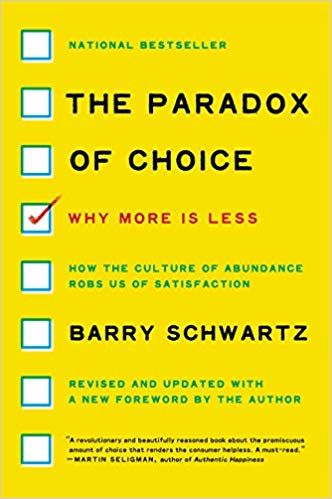
Sometimes, less is more. With decisions, this is often the case. The Paradox of Choice gives you the decision-making toolkit you need to overcome aversion and affirm the life that is waiting for you.

